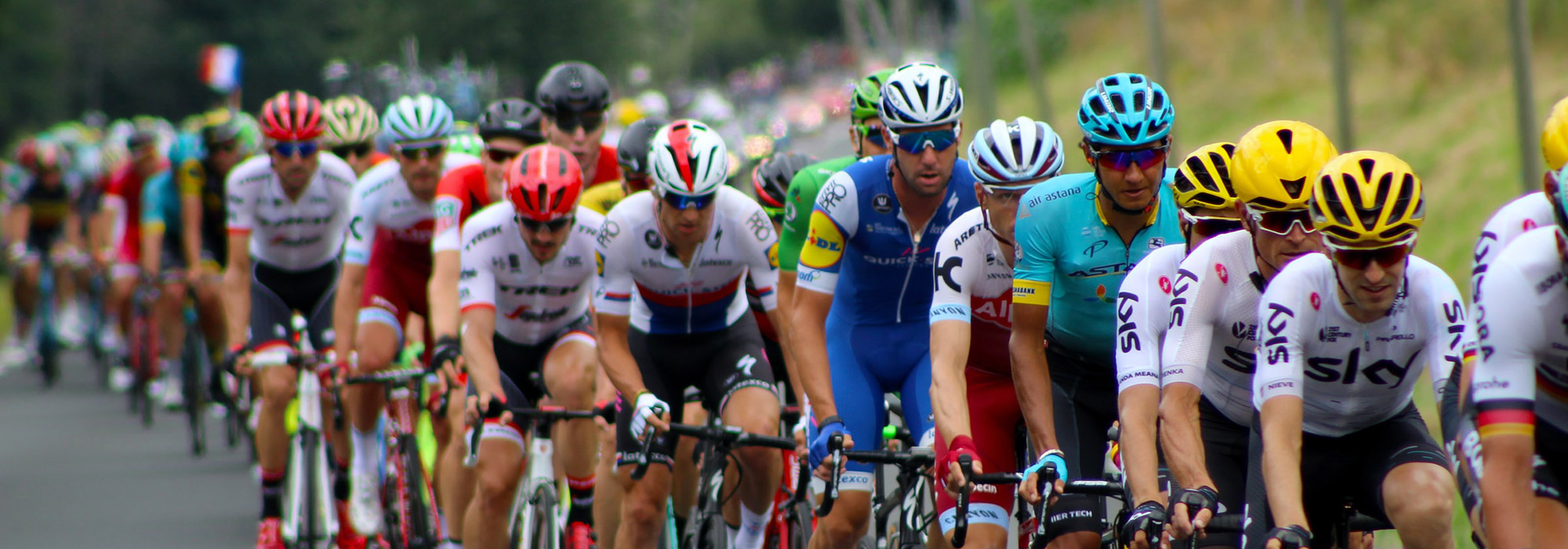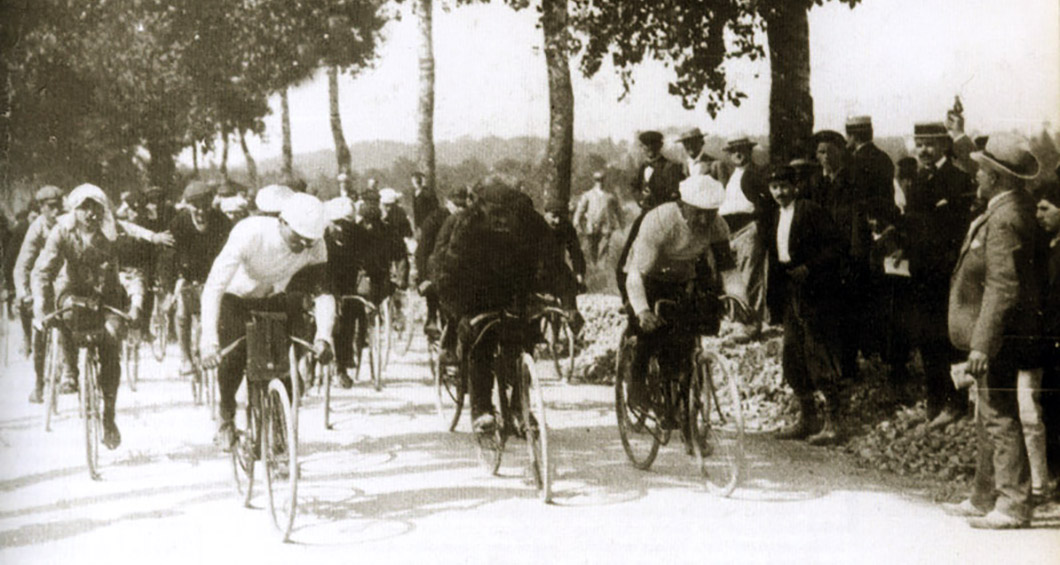The Tour De France: A Brief History
18 June 2021
On June 26th 2021, 19 teams of the world’s best road cyclists will compete in the 2021 Tour De France, marking the 108th edition of the famous cycling race and one of three of cycling's "Grand Tours" (the other two being Giro D'Italia and Veulta D'Espagna).
The inaugural Tour De France was started in 1903 due to, out of all things, a feud between two French newspapers, Le Velo and L'Auto. The conflict started when cycling was gaining much popularity, while political unrest was sweeping across Europe. The rivalry between the two newspapers erupted over the Dreyfus scandal, in which French army officer Alfred Dreyfus was convicted of treason (a sentence which was later overturned). The rivalrous newspapers adopted polarised stances over the Dreyfus affair and, Le Velo, France's most widely circulated sports newspaper at the time, won a court ruling against L’Auto, which negatively affected the latter’s sales and national circulation. Motivated to boost their declining popularity among cycling fans, L’Auto came up with the idea of organising a race that would go across all of France and essentially function as an enormous promotional campaign for the paper. The 1903 Tour De France was the brainchild of L’Auto’s chief editor, Henri Desgrange, who was a seasoned cycling event promoter, former racer, and holder of the first World Hour Record. Unexpectedly, the success of the Tour De France led to a massive increase in L’Auto’s sales to the point of driving its rival, Le Velo, into bankruptcy.
Tour de France 1903. The first kilometre in the history of cycle racing Tour de France.
Although the Tour De France today is comprised of 21 grueling stages in mountainous terrain, the first Tour had only six stages and all were fairly flat, if exceptionally long with an average distance of 400km, which is about double the distance of contemporary Tour stages. At the start line were 60 professionals or semi-professional riders. The majority were French with the rest being four Swiss, four Belgians, two Germans, and only one Italian. Only 21 of the 60 competitors finished the first Tour, which ended 19 days after it began. The lone Italian, Maurice Garin, eventually went on to win the event, as well as the following year’s Tour. Garin took the victory by a three-hour margin over second-place finisher, Lucien Pothier. Garin was eventually disqualified, along with several other riders, for using illegal measure to gain an advantage over other riders, including using motorized assistance.
The Maillot Jeune, or yellow jersey, is awarded to the overall leader after each stage. This was not part of the early days of the Tour De France, however, and the race leader just wore a green arm band which wasn't easy to spot. It was decided that the race leader would wear a yellow jersey in homage to the yellow paper on which L’Auto was printed.
Aside from the General Classification Yellow Jersey award (the winner of which is the rider with the fastest cumulative time across all 21 stages), there are three other primary awards in the present-day Tour de France:
- Mountains classification (polka-dot jersey) for the best climber
- Points classification (green jersey) for the best sprinter
- Young rider classification (white jersey) for the fastest rider under age 26
Over the years, the Tour De France has evolved to include a diverse set of road cycling challenges like steep mountain climbs and time trials. While the little incidental details changed to reflect advances in training, technology, and massive increase in funding for the sport, the core idea of the event remained the same. Although the Tour's competitors are elite athletes with ability to perform at the highest levels of their sport, the common element between those riders and the public who watch them remains the same after more than a century: you give everything in your power to get to the top of the mountain, from point A to point B. In the early days of the Tour, this connection was even more pronounced and fundamental, as most people in rural France used a bicycle to get to their place of work, and the physical effort to pedal up a steep hill was relatable, in relative terms.

In 1936, the event that boosted the success of the tour was the passage of a law guaranteeing paid holidays in France. The organizers of the Tour have given a start date in July, which coincided with the time in which most of the population took vacation time. The Tour became a French summer institution, equal to if not more than a beachside holiday.
The history of the Tour De France is jam-packed with both excitement and controversy. Athletes endure seemingly superhuman efforts over the arduous stages with little to no rest in between. Doping scandals plagued the Tour throughout its history. The Amaury Sport Organisation, the organiser of the Tour De France, has been criticized for its inability or unwillingness to hold a comparable women’s event. That being said, the Tour is widely celebrated as one of the greatest athletic challenges in the world. Professional cyclists regard winning a single stage, let alone the whole Tour, one of the highest honours in the sport. The combination of speed, strength and endurance makes winning the Tour de France a highlight career achievement for any professional cyclist.
Since its 1903 inaugural event, the Tour has taken place every year except for two pauses during the two World Wars. The Coronavirus pandemic delayed the 2020 Tour from its normal start in June to the end of August, with the 2021 edition scheduled for June 26th. Despite a history certainly not free from faults, the Tour De France has endured for more than a century and will likely continue to inspire cyclists around the world for years to come.

